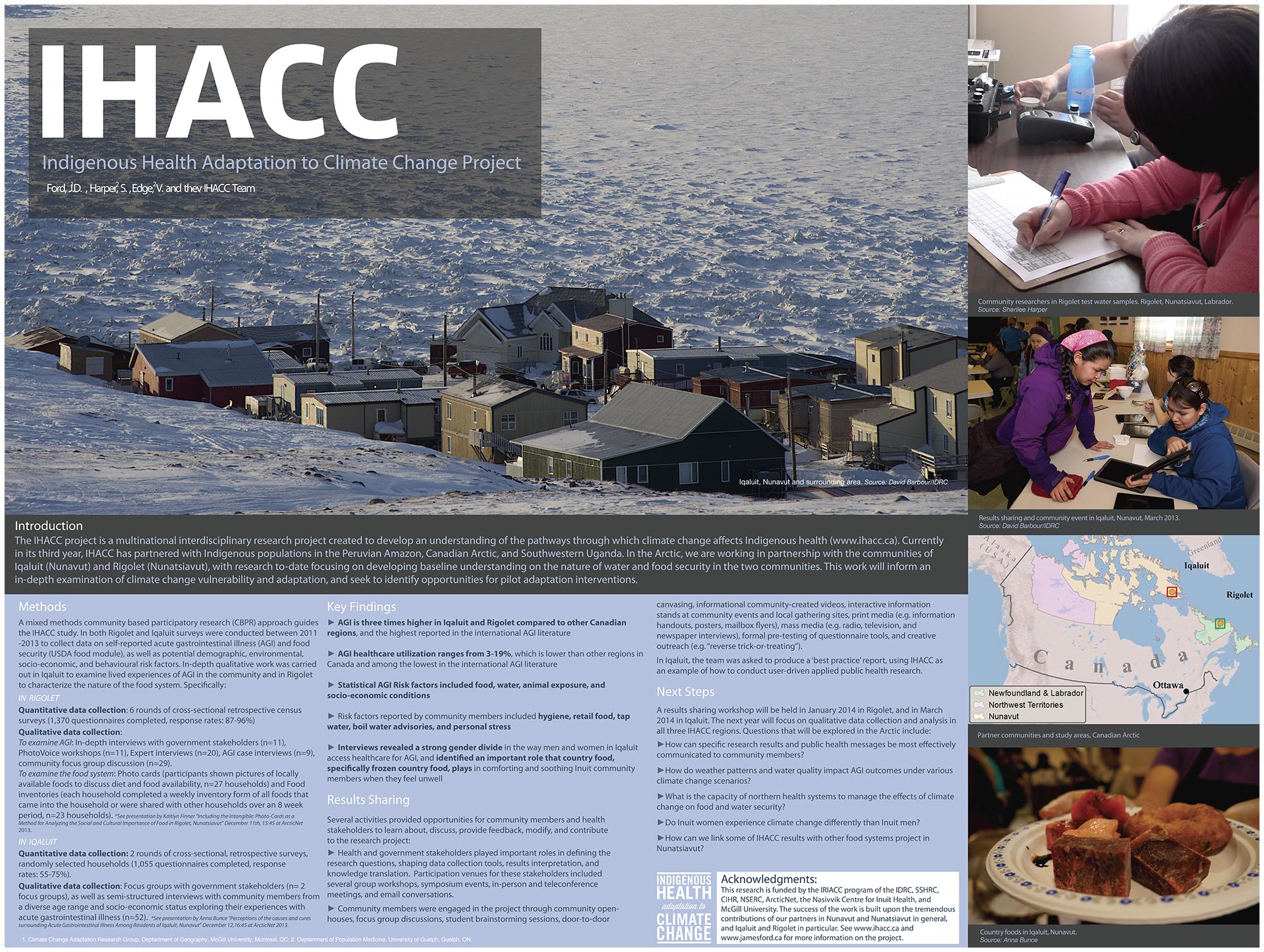IHACC Peru recently completed field work with Shawi communities in the Alto Amazonas Province. To learn more about IHACC activities in November and December 2013 click on the following three field reports: Water and Sanitation - November 2013
New Approaches to Education - November 2013
A Medicinal Plant Garden - December 2013



 Congratulations to Sherilee Harper on successfully defending her PhD on acute gastrointestinal illness and links to climate change in the Arctic. Sheri's PhD is the first to come out of IHACC, and she will continue working on the project as faculty at the University of Guelph, also joining the project management committee.
Congratulations to Sherilee Harper on successfully defending her PhD on acute gastrointestinal illness and links to climate change in the Arctic. Sheri's PhD is the first to come out of IHACC, and she will continue working on the project as faculty at the University of Guelph, also joining the project management committee.

